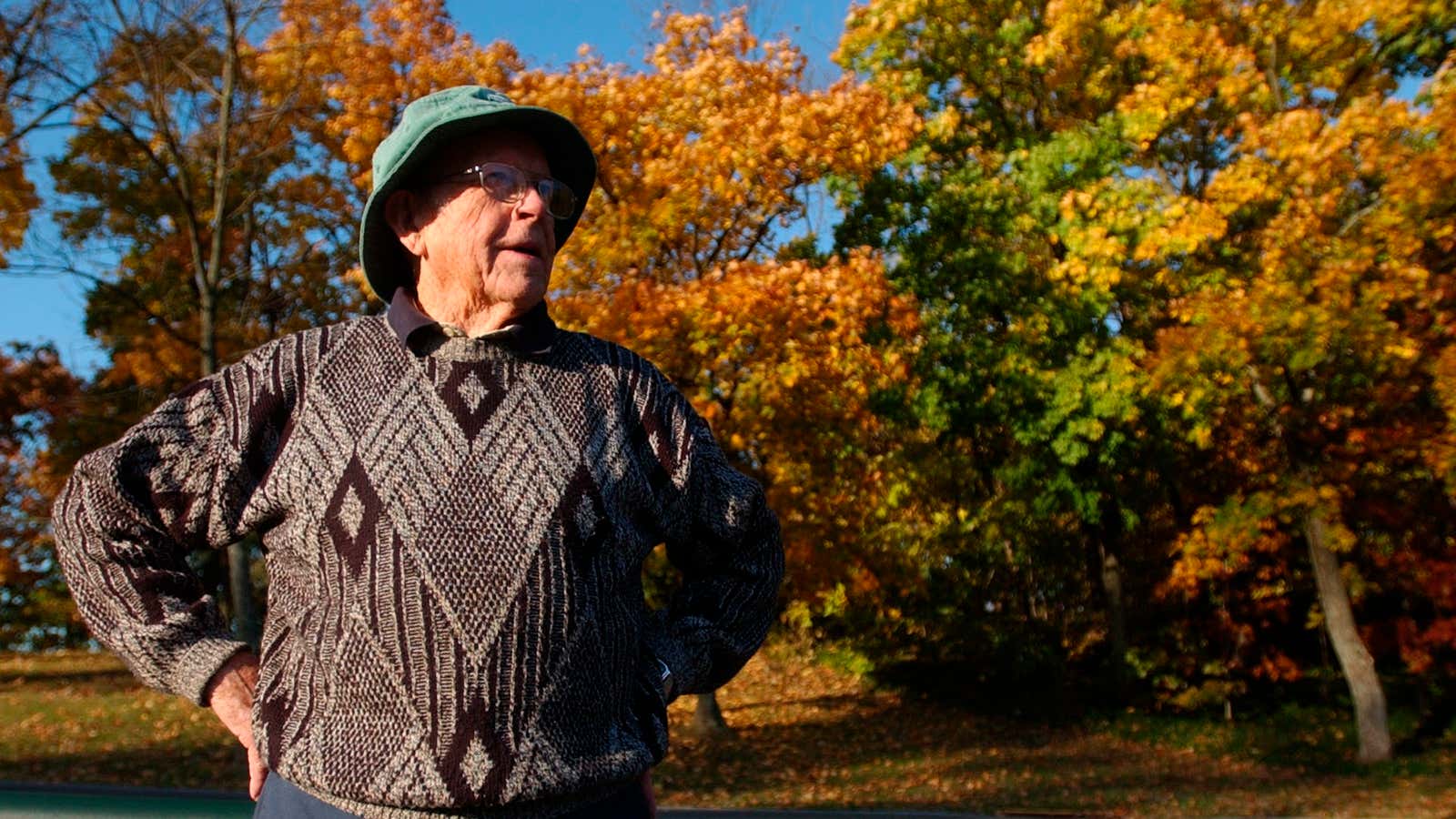Humans have extended their lives more in the past 100 years than in the previous 200,000, says a paper published in the Proceedings of the National Academy of Sciences. Here’s how the authors broke down the astonishing rise of the 21st century’s gerontocracy:
- A radically extended lifespan has been experienced by only four of the 8,000 generations of modern humans that have lived on earth.
- A 72-year-old man living in Sweden or Japan today has the same odds of dying as a prehistoric 30-year-old hunter-gatherer.
- Prehistoric humans already had a significantly extended lifespan when compared to our non-human primate ancestors, yet the difference between modern and prehistoric humans is even larger.
- Humans have gotten older at a rate much faster than scientists have been able to achieve in laboratory animals like fruit flies, despite intensive genetic engineering.
- This extension of life has been so rapid that the researchers involved are now unsure just how long humans could live. “How much longer can we extend life?” researcher Oskar Burger told the Financial Times. “We just don’t know.”
If the authors are right, and today’s aging populations become even older, then the current global pension crises are just a foretaste of what’s to come.
